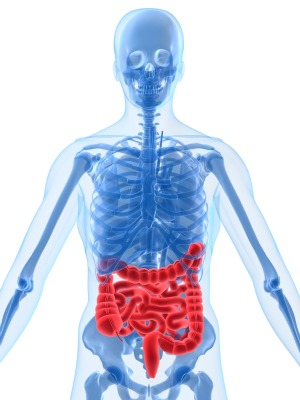
Inflammation is beneficial when the body is fighting off an acute infection – but not so helpful when it becomes chronic. For patients with inflammatory bowel disease, persistent inflammation in the gastrointestinal tract increases the risk of colon cancer.
Jeremy Goettel and colleagues examined the role of KSR1, an enzyme required for colon epithelial cell survival, during chronic inflammation of the colon. They crossed mice deficient in the anti-inflammatory molecule IL-10 (a model of spontaneous colitis) with mice deficient in KSR1. The resulting double knockout mice developed accelerated severe colitis by 4 weeks of age, primarily due to loss of KSR1 in immune cell lineages. T helper cells missing KSR1 had increased interferon-gamma production, and administration of an interferon-gamma neutralizing antibody attenuated the severity of colitis in the double knockout mice.
The findings, reported in the January issue of Gastroenterology, suggest that strategies to increase KSR1 expression may be beneficial in dampening inflammatory responses.